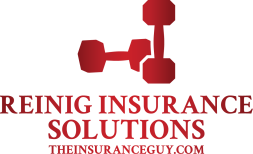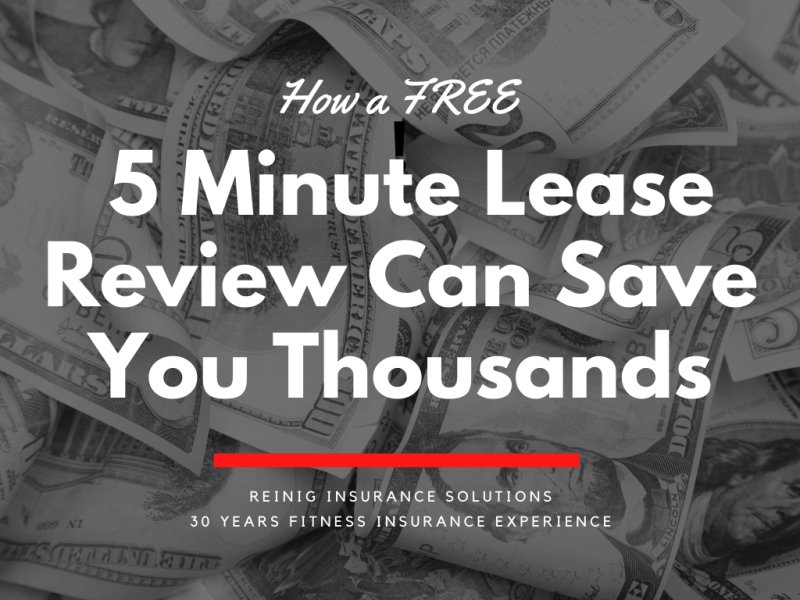One of the most important risk management decisions a new club owner should make is to have an attorney review the lease prior to signing. This may sound obvious, but it makes more sense when you look at it with insurance as the focus. Attorneys and their clients are focusing mainly on terms and conditions of the lease- not so much on the insurance requirements.
The insurance requirements of a lease can have a significant effect on both liability and property exposures. And, with leases created by the landlord, it is not surprising that the building owner will pass on many of these exposures to the tenant.
How Does Over-Insuring Affect My Coverage Rates?
Liability requirements can sometimes be borderline extreme and are often unnecessary. The standard liability insurance requirements for a typical fitness center should be $1,000,000 per occurrence with a $3,000,000 aggregate (the most the insurance company will pay out in any one policy year). Landlords, upon the advice of THEIR attorney, often require additional limits of liability protection by requiring the tenant to purchase umbrella insurance coverage.
Sometimes umbrella coverage is important to consider. But, for a single operator of a gym, this additional policy is often unnecessary. The typical cost to purchase an umbrella policy for a health club is $1,000 a year. If a landlord requires a $5,000,000 liability limit, you can see how this significantly increases your insurance expenditures. In any event, the liability requirements should always be discussed with your insurance agent and/or attorney.
What am I Responsible for Insuring?
There can be real confusion on which party is responsible for insuring the property. The building owner typically has insurance for the structure and is responsible for the liability associated with building ownership, parking lots, and sidewalks. The tenant (a.k.a. you) is responsible for all liability associated with the operation of the gym and will purchase insurance to cover the equipment and business personal property.
Gray areas of insurance responsibility occur when the lease requires the tenant to insure property that is not owned by the tenant. Building glass, HVAC, and improvements made to the space are owned by the landlord.
Therefore, when speaking with your insurance agent, it is vitally important to make sure the insurance underwriter knows that this property needs to be added to the coverage provided under a property policy. Typically, an insurance contract will only insure property owned by the policyholder. Glass, Signage, HVAC, and Improvements are not owned property. Since the lease itself creates an “insurable interest” in these types of property, the insurance company must be aware of the values for this additional exposure and acknowledge that they are covered under the tenants insurance.
Bottom line; be sure to involve your attorney AND your insurance broker in the lease review process prior to signing.
How A Five-Minute Lease Review Can Save You Thousands
When you rent commercial space for your business, your landlord wants to be certain they are protected from the additional exposures you bring to their space. When we review your lease, we’ll look at several areas to make sure you have the right insurance coverages in place to manage the right risks:
Business Liability Insurance Limits
Your lease likely has a requirement that you carry commercial liability insurance coverage. This is to protect your landlord should someone be injured on the property while at your business. With gyms and fitness centers, this coverage becomes critical as there is a higher risk of injury to individuals at gyms.
But what are the minimum limits required by your lease? You may not have sufficient coverage if you haven’t reviewed your lease requirements, or perhaps you have more coverage than required. We can review that with the rest of your lease and policies to help you determine the right coverage limits for your fitness business.
Maintenance of Your Outside Spaces
We’ll look at the small print of your lease to find details like who is responsible for the upkeep and repair of the outside spaces at your location? Parking lots can be costly to keep in good working order and can lead to serious injury claims if someone trips and falls due to a failure to maintain a safe space. If you’re located in a state that gets winter weather, your risks increase in colder months when icy and snowy conditions must be managed promptly.
Landlords are often responsible for the maintenance of these outdoor spaces, and your commercial insurance policy can reflect your lack of that particular exposure in its underwriting.
What About The Indoor Systems?
Gyms and other fitness centers need good HVAC systems for proper ventilation. Odors and mold conditions must be managed, and indoor spaces kept comfortable and cool enough for sweaty people. Aquatic centers and pools have other needs and stresses on the plumbing and drainage systems, as well.
Also, consider amenities like floor-to-ceiling mirrors installed in your fitness center or large plate glass windows between workout rooms or at street level. Are these associated expenses covered by your landlord’s insurance policy or should they be covered by yours? That answer can depend on a few factors, and we can help identify your exposures through our complimentary lease review.
Changes, Additions, and Upgrades To Your Leased Space
Have you made modifications to your space since you leased it? Maybe you’ve added tanning beds or a juice bar or updated the furnishings in the lobby. Perhaps you’ve installed new locker rooms or a rock-climbing wall. Any of these updates can change your lease and your exposures.
Your lease may shift the risk of any improvements onto you directly, rather than on your landlord. Understanding the value of your improvements and how they affect your insurance is important to be sure you’re paying the proper premium and have the right coverage in place for upgrades.
Standard Insurance Coverages You Will Likely Have to Purchase
There are some basic commercial coverages your landlord will likely require you to have when you sign a lease. You can ask your carrier or agent to submit a certificate of insurance to your landlord on your behalf to prove you carry sufficient limits in the coverages required by your lease.
- Commercial General Liability (CGL) or Business Owner’s Policy (BOP) – Commercial General Liability or a Business Owner’s Policy is the basic coverage you’ll start with for your fitness business – it includes coverages for property and liability, giving you a starting point before adding more specialized coverages. Your landlord will likely specify minimum limits for some coverages based on the value of the space you’re leasing.
- Workers’ Compensation – If you have employees at your fitness business, you’ll likely have to carry Workers’ Compensation to protect them from damages caused by accidents and illnesses at work and to protect your business against lawsuits from injured employees. This coverage is required by most states, as well.
- Business Interruption – On the heels of COVID-19, business interruption (loss of business income) coverage has received a lot of attention. For many businesses, there was no pandemic relief under their business interruption coverage because of the pandemic exclusions. However, it remains an important coverage for your business as it covers many other hazards that could cause a loss of income from your business.
- Commercial Auto – Depending on your business, you may need to carry commercial auto insurance to provide protection for vehicles owned by or leased to the business.
Your landlord wants to know you have these basic insurance coverages in place to protect their investment – if your business suffers a financial loss, it could cause you to default or break your lease, which is an expensive proposition for everyone.
How Can I Make Sure I’m Properly Insured?
It’s never too early OR too late to ensure that your club is properly insured. This goes both ways- are you paying too much for your current policy? Or does your lease require insurance that you aren’t currently covered for? Improper coverage (either way) can be extremely detrimental to your Club.
How do I Get My Free Lease Review?
My team and I want to make sure that you and your club are adequately insured. That’s exactly why we offer a free 5 Minute Lease Review. All you need to do is fill out a short form, send us your lease and we’ll do the rest. Our experienced team will take a look at your contract to find areas where you’re over (or under) insured- FOR FREE!
Bottom line- we at Reinig Insurance want to help YOU protect your Club while protecting your wallet. Click here to sign up for a free 5 Minute Lease Review today!





